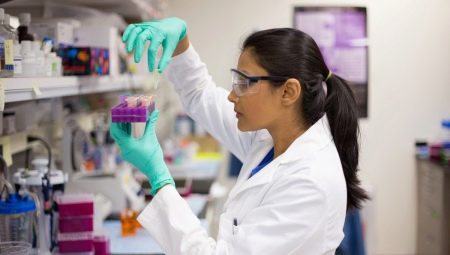The state of the environment is constantly changing under the influence of various disasters of anthropogenic and natural character. Pollution of the planet has become a global problem, which is why these days professions are demanded in one way or another related to the development of products that are safe for nature. In order to understand how the product affects the environment, some research is needed. Deals with this environmental assistantwhose activities we will consider in more detail today.

Features
Laboratories are open around the world that conduct various tests and determine the environmental suitability of the products. In them and environmental technicians work using special equipment to assess the environmental performance of the facility under study.
What they do is an extremely important, complex and responsible work requiring special knowledge and skills.
What is the main feature of the profession lab technician-ecologist? In that his research can help prevent a global catastrophe, stopping to release this or that product on time, or revise its composition and start using more environmentally friendly components that do not harm human health and do not pollute the environment.
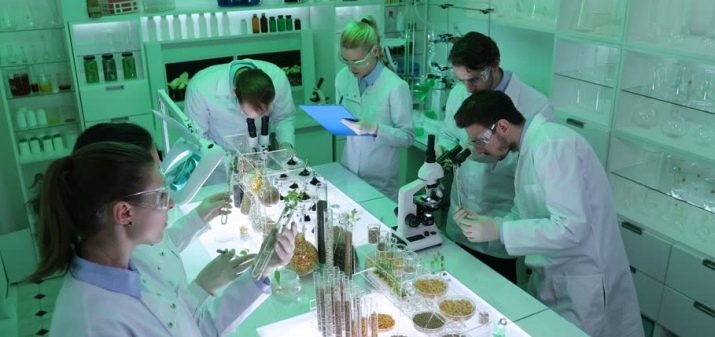
Responsibilities
What exactly does an environmental ecologist do? Consider his responsibilities:
- laboratory analysis and measurements using special equipment;
- collection of samples of plant and animal nature, as well as soil for their subsequent study in the laboratory;
- determination of the degree of contamination of water, air, soil;
- examination and forecasting the further impact of the production process on the world and people.
Knowledge and skills
A professional environmental scientist should have the following skills:
- well versed in environmental laws, standards and regulations;
- know chemistry, physics, biology, understand the essence of processes occurring in nature;
- know the procedure for environmental impact assessment;
- understand the methods of environmental monitoring;
- be able to work on a computer, have modeling skills using special programs;
- to adopt domestic and foreign developments related to the protection of nature;
- undertake document management within its competence;
- speak at least one foreign language.
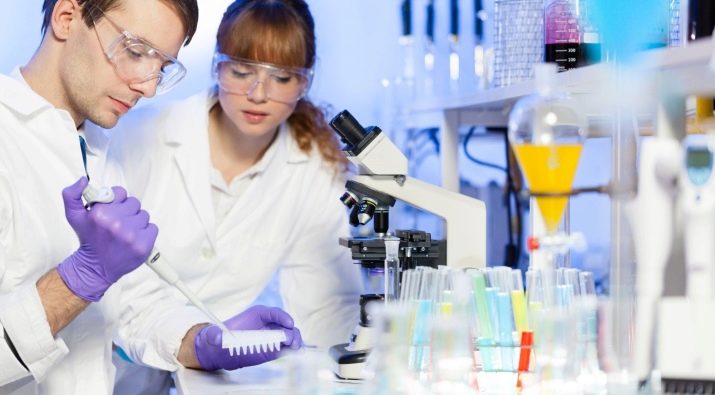
Personal qualities:
- tact, a flexible mind, civic courage (useful in order to challenge the unauthorized actions of persons vested with power, state structures);
- discipline;
- ability to work both as a team and alone;
- resistance to stress;
- conscientiousness, responsible attitude to work, dedication;
- accuracy;
- ability to analyze and draw conclusions;
- love for the world, animals, plants;
- ability to make decisions independently and bear responsibility for them.
Specific requirements for a specialist:
- the ability to subtly distinguish colors;
- well-developed sense of smell;
- tactile sensitivity;
- developed fine motor skills of the fingers;
- excellent visual memory.
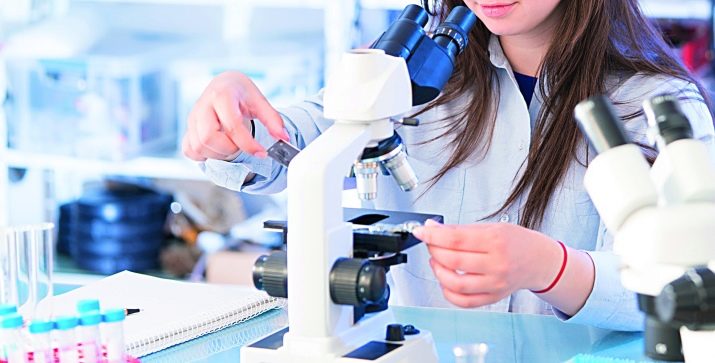
Education
Today in Russia there are many educational institutions that have the profession of laboratory assistant-ecologist in the list of offered specialties. You can take training after 9, and after grade 11. To enroll as an environmental technician, You need to go through a certificate contest. You can choose a college, university. And adults who want to change their professional activities can go retraining. The duration of training depends on the form (full-time, evening) and available education (9 or 11 classes).
Before receiving a diploma, students undergo practical training and defend graduation qualification work.
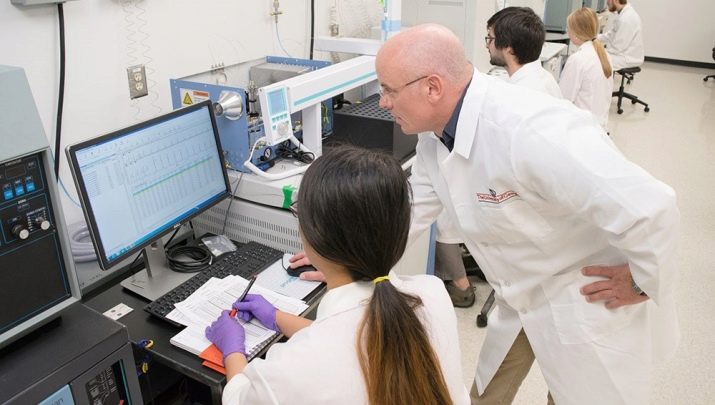
Place of work
Laboratory assistant-ecologist can be:
- a dosimetr performing work on measuring the level of contamination of surfaces and spaces with radioactive atoms using dosimetric instruments;
- Laboratory assistant for the analysis of gases and dust - to analyze the air, measure the degree of dust in the premises;
- a spectral analysis laboratory assistant working in the laboratory and carrying out a qualitative analysis of a variety of samples;
- laboratory assistant for chemical and bacteriological analysis - to prepare samples for testing and analysis, to test samples of raw materials and finished products in the laboratory;
- laboratory assistant for chemical analysis - to receive information about the chemical composition or chemical properties of the studied substances;
- a laboratory microbiologist carrying out the fermentation process of antibiotics and other biosynthesis preparations in the laboratory;
- a polarographic laboratory assistant who analyzes dry samples and solutions using polarography;
- a sampler that collects and cuts samples of minerals, metals, raw materials, semi-finished products, finished products, solutions, petroleum products, solid mineral fuels, building materials manually using samplers and special devices.
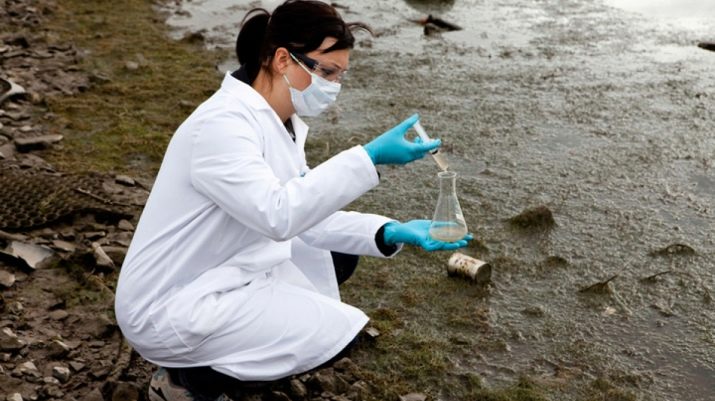
Laboratory assistant-ecologist can work:
- at construction and production facilities;
- in environmental organizations;
- in the medical industry;
- in administrative bodies;
- in educational institutions;
- in insurance companies;
- in charity funds.
Let's talk about the salary of this specialist. Its size depends on a number of factors.
- Region of work (in hazardous areas, for example, contaminated with radiation, its performance is significantly higher than average).
- Specialization, work experience, experience.
- Workload.
- Who is the employer: government agency or commercial organization. In the first case, the level of wages is lower at first, but there are more career opportunities.
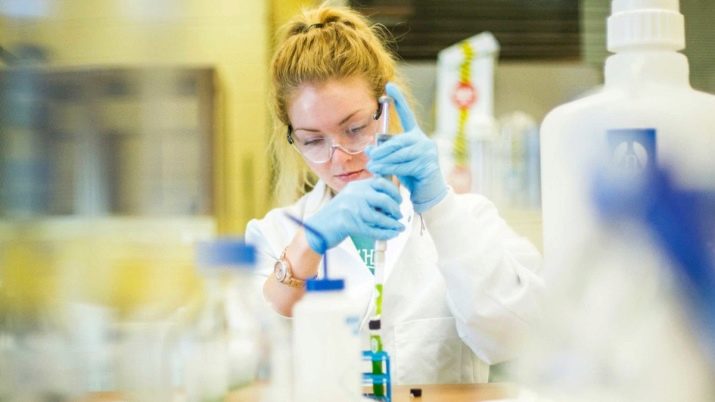
Well, now consider the real numbers. Judging by the latest data, the laboratory assistant-ecologist receives in Russia:
- 15,000–20,000 rubles per month at a state-owned enterprise;
- 20000–50000 rubles per month in a private company.
Overview of salaries abroad ($ per month):
- Belarus - 350;
- Ukraine - 250;
- UAE - 1000;
- USA - from 5000;
- Estonia - from 1000;
- France - from 1000.

For more information on the profession of laboratory assistant ecologist, see the next video.
